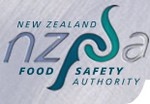Court slams unhygienic poultry processing
An Auckland woman whose company slaughtered thousands of poultry in what a judge described as stomach-turning conditions has been fined more than $23,000 in a case brought by the New Zealand Food Safety Authority (NZFSA).
Ling Zhang and her company Ling Ling Poultry pleaded guilty in Papakura District Court last week to four charges under the Animal Products Act.
Judge Eddie Paul fined Zhang $20,000 for selling animal product that has not been processed in line with the Act and $3000 for not having a registered risk management programme, plus court costs.
He told Zhang that to call the operation ‘bad’ was an understatement: “Anyone viewing that barn in the manner in which those chickens were slaughtered, their stomach would turn.”
He convicted and discharged the company as it was no longer trading.
The court heard that on 12 October 2007, an NZFSA animal products officer found four people slaughtering poultry for the company in a barn in Ardmore.
Under the Animal Products Act, primary processors of animal material must operate under a registered risk management programme. The premises had no risk management programme. It also had no electricity, running water, refrigeration or sanitation.
The officer served a Notice of Direction that stopped the company from producing, processing and storing poultry. He then condemned and disposed of 100 kgs of dead birds.
Inquiries found that between December 2006 and October 2007, Ling Ling Poultry bought about 57,000 live birds, which were processed and sold to restaurants and butchers in the Auckland area.
NZFSA’s assistant director of compliance and investigation Justin Rowlands said the court ruling was an excellent outcome.
“This company had woefully poor hygiene, and completely ignored regulations, which put consumers directly at risk.
“Poultry is a primary source of Campylobacter, New Zealand’s leading foodborne illness. Risk management programmes have controls that reduce the presence of harmful bacteria and help ensure poultry is free from other hazards.”
